This is not a difficult topic, because in Spanish there are also countables and uncountables, and 95% of the time they match.
Este no es un tema muy difiícil, porque en el Español también hay contables e incontables, y casi siempre coinciden.
A) Let´s see:
- We bought a pizza = Compramos una pizza
- I ate some pizza and some crisps = Comí ____ pizza y ____ patatas fritas
- James has a fish = James tiene un pez
- Today I´m going to buy some fish = Hoy voy a comprar ____ pescado
- How much money do you need? = ¿Cuanto dinero necesitas?
- How many notes did he have? = ¿Cuantos billetes tenía?
- How much sugar have you got? = ¿Cuanto azucar tienes?
- How many sugars do you want in your coffee? = ¿Cuantos azucares quieres en tu café?
- I haven’t got much money = No tengo mucho dinero.
- I haven’t got many coins = No tengo muchas monedas.
2 Conclusiones:
- Cuando no es ‘una’ cosa, en Español no pones artículo. En Inglés, se usa ‘some’ (or ‘any’: hablaremos más adelante):
- I have a cat = Tengo un gato
- I have some cats = Tengo ___ gatos
- Would you like a coffee? = ¿Quieres un café?
- I’ve got some coffee. = Tengo ___ café
- Si en Español puedes usar ‘-os’ o ‘-as’ (muchas, cuantas, demasiados, tantos…) es contable. Si puedes usar ‘-o’ o ‘-a’ (mucha, cuanta, demasiado, tanto…) es incontable.
Using this method works very well, but there are some exceptions. The most important are ‘people’ and ‘furniture’.
Usar este metodo funciona muy bien, pero hay excepciones (¿como no?). Los mas importantes son ‘gente’ y ‘muebles’:
- There were too many people at the wedding (count.)= Había demasiada gente en la boda (uncount.)*
- They bought so much furniture! (count.) = Compraron tantos muebles (uncount.)
*(Otra manera de ver eso es decir que la palabra ‘gente’ no existe en Inglés, y que people significa ‘persona’, entonces: too many people = demasiadas personas)
There are two other words that change their meaning depending on if you use countable or uncountable:
- I’ve got too much work = Tengo demasiado trabajo (Incontable)
- These are important works of art = Son obras de arte importantes (Contable)
- How much time have we got? = ¿Cuanto tiempo tenemos? (Incontable)
- How many times do you go? = ¿Cuantas veces vas?
No problems? Has notado que:
- How many? (=Cuantos/as?)
- Too many (=Demasiados/as)
- So many (=Tantos/as)
- Many (=Muchos/as) are countable
- How much? (=Cuanto/a?)
- Too much (=Demasiado/a)
- So much (=Tanto/a)
- Much (=Mucho/a) are uncountable
Let´s go up one level! Vamos a subir un nivel:
The article ‘a’ (o ‘an’, antes de un vocal) is for the singular. ‘Some’ is for plural and uncountable. For example:
- Countable: A book (singular) Some books (plural)
- Uncountable: Some water
-In negative sentences you must change ‘some’ for ‘any’ . En frases negativas se cambia el ‘some’ a ‘any’ (y no, no me puedes preguntar porque). Example:
- I’ve got some books and some water for the beach.
- I haven´t got any books or any water for the beach.
Hay una idea entre estudiantes que ‘some’ y ‘any’ se usan para incontables (water). Es verdad, pero también valen para el plural (books). Ahora, que usamos para la pregunta – ‘some’ or ‘any’?
- Preguntar por informacion= ANY
Are there any sandwiches*? (Count) Is there any coke*? (Uncount)
*Has visto que los incontables usan singular + some/any, y los plurales plural + some/any, como en Español = Sugar are is sweet
[widgets_on_pages id=”Advert”]- Preguntar para Pedir o Ofrecer = SOME
Would you like some chips? (Count) Could I have some bread? (Uncount)
E) Extra Information
- There was some cake = Había pastel
- There was some cake left = Quedaba pastel
- There was some cake left over = Sobraba pastel
- I don’t have any oranges = No tengo naranjas
- I don’t have any oranges left = No me quedan naranjas
- I don’t have any oranges left over = No me sobran naranjas
F) Almost finished!
Much (=uncountable=mucho/a) & Many (=countable=muchos/as) se usan más en preguntas y negativas. Para frases afirmativas, solemos decir ‘a lot (of…algo)’, ‘plenty (of….algo= más formal)’ o ‘loads (of….= más colloquial)’ Valen tanto para contables (muchos) como incontable (mucho)
Did you have (much /a lot of / lots of / plenty of / loads of) time?
Not much / a lot- but…..
I hope we have (much /a lot of / lots of / plenty of / loads of) time on Saturday.
De la misma manera:
Few = pocos/as (contable), aunque es mucho más comun ‘not many’
I have few friends. I don´t have many friends.
Little = poco/a = uncountable, but you usually hear ‘not much’
There is little time! There isn´t much time!
G) Finally……
‘Any’ no significa ‘Nada’!
There isn´t any light = There is no light
I don´t have any time = I have no time
‘Any’ or ‘anything’ by itself (=por sí solo) means ‘cualquier’ o ‘cualquier cosa’. Solo significa ‘nada’ cuando va acompañado por ‘not’ en la frase. Por ejemplo:
What do you want for dinner?
Something (=algo)
Nothing (=nada)
Anything (=cualquier cosa)
Y ya acabamos para hoy. Si quieres deberes, escribe tu nombre y email abajo, y recibirás un correo con ejercicios. Comprueba tu bandeja de Spam.
Recibirás tambien un email para un servicio de subscripcion. Si aceptas, recibirás libros electronicos gratis, además de un correo cada mes (como maximo) con material y enlaces para ayudarte con el Inglés. Se puede cancelar la subscripcion en cualquier momento. Pincha aquí por más información



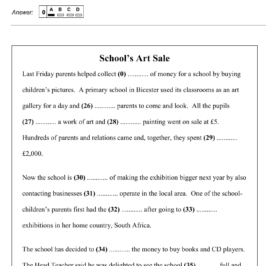
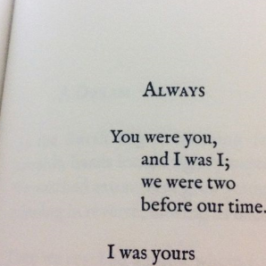

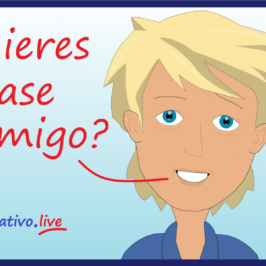
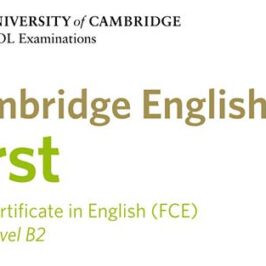
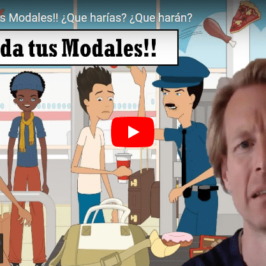
Leave a Reply